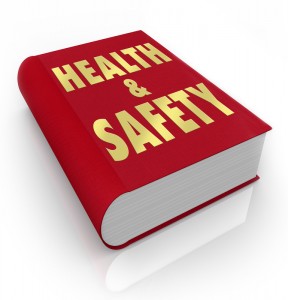 Most employers will already be well aware of the fact that they must keep records relating to health and safety incidents in the workplace. Some will even know that certain events will need to be reported to the Health and Safety Executive (HSE). But following a change to the guidelines in October 2013, are you still complying with your obligations?
Most employers will already be well aware of the fact that they must keep records relating to health and safety incidents in the workplace. Some will even know that certain events will need to be reported to the Health and Safety Executive (HSE). But following a change to the guidelines in October 2013, are you still complying with your obligations?
What hasn’t changed?
According to the HSE, RIDDOR reporting has been simplified to help employers stay on top of their obligations. Despite this, several key factors remain exactly the same.
Fatal accidents that result in the death of an employee will still need to be reported. Similarly, any incident which involves the injury of a member of the public is covered by mandatory reporting requirements. Finally work-related injuries that result in an employee missing more than seven days work will also need to be brought to the HSE’s attention.
Employers will also need to maintain an accident book to ensure they have full details of every incident in the event of an HSE inspection or audit.
The classifications of certain reporting conditions may have changed, but the employer still needs to keep the HSE informed of certain incidents.
What has changed?
Under the previous RIDDOR regime, there were dozens of conditions under which employers would need to report incidents. The new RIDDOR guidelines have helped streamline the list significantly – the list of work-related illnesses with mandatory reporting conditions attached has been shortened from 47 diseases to just eight categories for instance.
The nebulous ‘major injuries’ classification has also been tightened to create a shorter list of ‘specified injuries’. Similarly, the list of ‘dangerous occurrences’ requiring reports has also been reduced.
Plus ça change, plus ç’est la même chose
(The more things change, the more they stay the same)
The RIDDOR changes are designed to help employers stay on top of their obligations and to help the HSE better identify cases that require further investigation. It is important to note that although there have been changes to the injuries and incidents that need to be reported, employers are still required to notify the HSE according to certain pre-defined timescales.
The reality is that although the categories of incident that need to be reported have changed, the actual conditions have not. This means that employers will still need to contact the HSE if:
- Someone dies at work. The only exception is if the death is ruled a suicide.
- The injury sustained appears on the HSE’s ‘specified injuries’ list.
- A worker is incapacitated for seven days or more.
- A member of the public is injured on your site before being taken to directly to hospital as a result.
- An employee contracts one of the specified ‘occupational diseases’.
- A near-miss incident occurs on site which matches one of the 27 specified categories.
- An employee is gassed or injured as a result of a gas-related incident.
The RIDDOR changes may have simplified incident reporting on paper, but employers still need to be fully informed of their obligations.
Staying informed
Changes to health and safety legislation are usually well publicised, but the onus for staying up-to-date is always placed on the employer. Where time and resources allow, much of the information can be obtained directly from the HSE website, including specifics of each ‘occupational disease’ or ‘specified injury’.
However for most employers, including the very smallest, securing the services of an outsourced ‘competent person’ will be more cost-effective and efficient. A competent person will be able to provide training and advice in the event of a legislative change, and unlimited support in the event of an incident. The competent person will be able to review each onsite event with you and advise whether a RIDDOR report is necessary or not, and the correct procedure for lodging one.
Staying compliant
To remain complaint with your RIDDOR obligations then:
- Maintain records of each and every workplace accident, including those that involve members of the public.
- Refresh your knowledge of the RIDDOR guidelines routinely.
- Make any RIDDOR reports to the HSE within the specified time limits.
- Consider a competent person service to reduce your own health and safety workload.
Now its your turn
Do you have comments we’d love to hear from you.

A chartered (fellow) safety and risk management practitioner with 20+ years of experience. David provides a healthy dose of how-to articles, advice and guidance to make compliance easier for construction professionals, Architects and the built environment. Get social with David on Twitter and Linkedin.




One Comment
[…] Complying with your RIDDOR obligations is important. Veritas Consulting offer advice and Assistance on the RIDDOR Changes. 0800 1488 677 […]